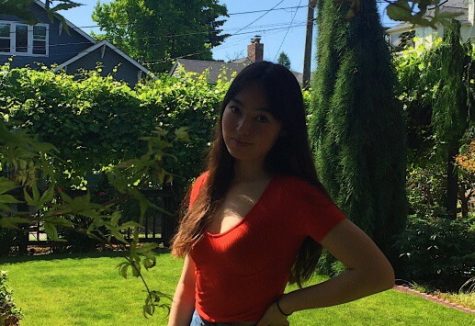What do YOU call October 14th?
The Prep Community Voices Their Opinion
November 7, 2019
October 14th is a national holiday in many countries, including the United States. Although the day is widely known as “Columbus Day”, many places have begun to recognize this day with another name: “Indigenous People’s Day.” In fact, the Seattle City Council voted in 2014 to officially change the name of this controversial holiday.
So why the sudden name change? Many have begun to dedicate this day in celebrating the indigenous heritage of the Native Americans, rather than the Italian explorer, Christopher Columbus.
The students of Seattle Prep have their own share of opinions on this highly debated matter. From a poll held on the school’s official Instagram account it was revealed that 73% of students call the day “Indigenous People’s Day”, while the other 27% refer to it as ‘Columbus Day.’
“Columbus Day is very outdated. Native American culture is so diminished in our country. In reality, this is their land. I think it’s important to recognize they were here before Columbus” says Alex Battle ’21. She continues to claim that she “never learned about native Americans in history class” until enrolling at Prep. She firmly believes that more exposure to the history and culture of the Indigenous people is extremely necessary in the United States. Hannah Harris ’21 is another student that poses similar views as she finds people that are supporting Columbus Day “as being selfish.”
On the other side of the argument there are Prep students who prefer calling the celebration by its older name. Diego Garcia-Camargo ’21 finds the “controversy (to be) based on questionable sources at best.” He argues that “the main evidence of Columbus’ actions being genocidal, and evil come from his political rival Francisco Bobadilla.” He went on to say: “the truth is, we don’t know how much Columbus was responsible for the terrible treatment of natives, but that is not what the holiday celebrates. It celebrates the achievement Columbus had in reuniting the human race.” He even spoke of Bartolome de las Casas, the Bishop that is taught in freshman Collegio classes: “(He) describes a much different image of Columbus: one of admiration for his just and respectable treatment of natives.” Finally, he declares that this doesn’t mean “we completely accept any wrongdoing (Columbus) may have had” but to “be honest in our assessment of said wrong doing.”
Mich Coles ’21 poses an alternative solution, believing that the holiday should be celebrated by both their names. “There’s no reason to have it one way or the other. Both the native Americans and the colonists did good and bad things, they’re human. You have to accept the benefits of both sides on this country.”
Prep’s HEX teacher Mr. Smith, an English by birth, believes that the day is to “reminisce on the discovery of America, but (also) see it as a day with a lot of potential negativity and atrocity associated to it based upon the person and their alleged actions.” He is of the opinion that he “wouldn’t call it either of the names” but rather the name it as a celebration of “the birth of a country, that does not focus on the celebration of a person (Christopher Columbus) or the atrocities associated with that person.”
In contrast, Seattle Prep Alumni Ashley Mah ’18 believes that making Columbus Day and Indigenous People’s Day on the same day “pushes oppression further and glorifies colonization,” as it “erases the pain and suffering the Indigenous people went through.”
Many cities and states begin to transition from Columbus Day to Indigenous Day, stirring lots of controversy. Different questions and arguments arise from different spectrums. Which ever name it is called, the day offers plenty of opportunities to learn and discuss the history of the country and its people.


